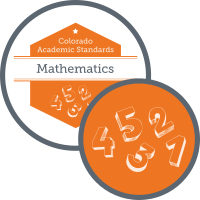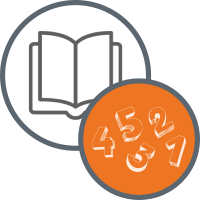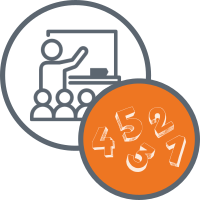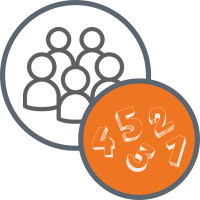You are here
Mathematics
News and Announcements
No-Cost Professional Development
Colorado Department of Education is offering Powerful Practice: Evidence-Informed Math Teaching, an asynchronous professional development opportunity aimed to enhance mathematics instruction for educators across the state. The course is ideally suited for K-12 educators, interventionists, curriculum specialists, out-of-school time professionals teaching math, school principals and facilitators looking to lead professional learning communities within their educational setting or region. Participants can expect:
- Fourteen, 1-hour modules to support educators in teaching students in grades K-12, with attention paid to teaching students who are below grade level or struggling in math, children with disabilities and students who are English language learners
- A focus on critical math concepts and evidence-informed practices to improve student outcomes
- Opportunities for reflection and planning to promote instructional growth
All individual spots for the 2025-2026 cohort are filled but there are opportunities for BOCES, districts, schools, or other local education agencies to enroll their own cohorts, complete with support for discussion facilitation. Contact Joe Brenkert at brenkert_j@cde.state.co.us for details.
Want more news? Keep up with more events and announcements by joining the CoMath listserv.

Academic Standards
The mathematics standards compel us to make mathematics relevant to students by moving beyond mere answer getting to doing the work of mathematicians. The standards emphasize the development of students’ abilities to use mathematics to represent their lived experiences and to simplify and explain complex phenomena.

Curriculum Support
Article IX, Section 16 of Colorado's constitution states, "Neither the general assembly nor the state board of education shall have power to prescribe textbooks to be used in the public schools." However, CDE can still serve as an advisor to help districts and schools adopt, adapt, develop or use the materials of their choice.

Instructional Support
Instructional support is grounded in CDE's shared approach to Best, First Instruction as well as practices and strategies supported by professional organizations and scholars at the leading edge of mathematics education.

Community
There are many opportunities to connect and grow as a professional educator with the larger mathematics education community, including mailing lists, professional organizations and events.
Frequently Asked Questions About Mathematics in Colorado
Do you have questions about Colorado's mathematics standards? Graduation requirements? Textbook recommendations? They might be answered here.
- How many high school math credits are required to graduate?
- Where is the list of math programs and interventions that are approved to use in schools?
- How are Colorado's math standards like and not like Common Core?
Improving Mathematics Outcomes in K-12 (House Bill 23-1231)
House Bill 23-1231 was passed in April of 2023, establishing various programs to improve mathematics outcomes and accelerate achievement.
These programs include professional development, advisory lists for instructional materials, guidance for improvement planning, new and expanded grant programs and new rules for educator preparation.
Have questions for the math team? Email mathacceleration@cde.state.co.us.
For further assistance, please contact:



Connect With Us





